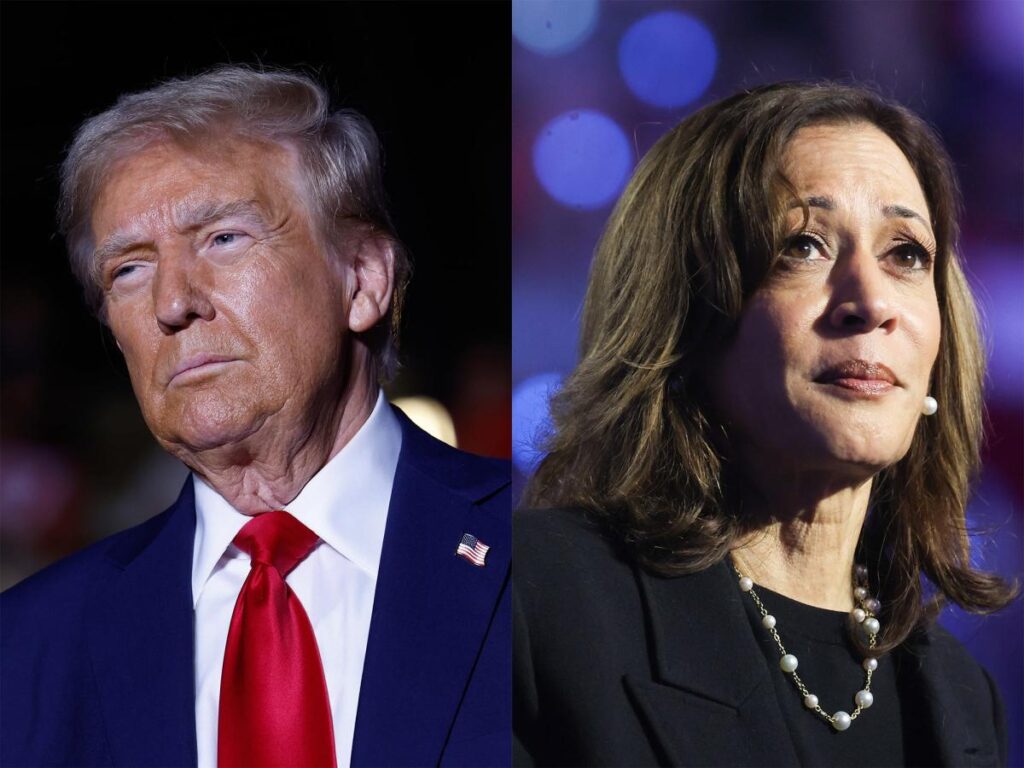On Election Day, a diverse group of business leaders from major corporations stepped forward to express their views regarding the political climate and the importance of a peaceful electoral process. Prominent among them was former Starbucks CEO Howard Schultz, who took to LinkedIn to call for unity and a smooth transition of power. Schultz emphasized the significance of the election, describing it as a pivotal moment for the nation. Although he did not endorse a particular candidate this time, his previous endorsements of Joe Biden and Hillary Clinton demonstrate his engagement in the political sphere. Schultz’s message reflected a common thread among many executives: the need for acceptance of electoral results and the preservation of democratic ideals amidst a backdrop of misinformation and societal division.
In stark contrast, other business moguls, such as Elon Musk and Jamie Dimon of JP Morgan Chase, voiced support for their preferred candidates. Musk, a well-known backer of Donald Trump, continued to share pro-Trump sentiments on social media, promoting messages of triumph for the former president. His statements were characterized by a belief that legacy media narratives would not dissuade Trump’s base. Meanwhile, Dimon, while refraining from endorsing a candidate, urged the importance of national unity and the need for all Americans to rally behind the future president, regardless of their political affiliations. This highlights a division among leaders—while some choose to endorse candidates, others advocate for a broader, nonpartisan call to action.
Additionally, Reid Hoffman, the co-founder of LinkedIn, took the opportunity to explicitly support Vice President Kamala Harris. Through a post on X, he made a compelling case for Harris, signaling that she prioritizes the needs of both entrepreneurs and the general populace over personal gain. Hofmann’s critical stance on Trump’s endeavors in cryptocurrency displays a blend of personal politics intertwined with broader business interests, showcasing how technology and business leaders often engage in electoral discussions. The dichotomy between Hoffman’s pro-Harris advocacy and Musk’s Trump support exemplifies the complex web of political affiliations among prominent business figures, revealing how their beliefs are often rooted in their professional landscapes and personal convictions.
On a more divisive note, Howard Lutnick, CEO of Cantor Fitzgerald and a member of Trump’s transition team, reaffirmed his allegiance to the former president, calling for others to join him in supporting Trump’s initiatives. Lutnick’s remarks highlighted the significant loyalty that exists among certain business leaders toward Trump, which could have implications for future political or administrative appointments should Trump reclaim power. Similarly, other tech and finance executives have openly declared their support for Trump, creating a collective voice that underscores Trump’s enduring influence among parts of the business community.
Amidst the backdrop of these individual declarations, a broader coalition of business leaders, particularly from the manufacturing sector, issued a letter emphasizing the necessity for national healing and unity following a contentious election. This correspondence included over 600 leaders from significant companies such as General Motors and Lockheed Martin. They collectively highlighted the importance of a peaceful transition of power and the role it plays in maintaining public confidence in governance. This move signifies a growing acknowledgment among executives of the need to prioritize collaborative efforts over political competition in fostering a stable economic environment.
In summary, the political landscape on Election Day saw a blend of strong endorsements and calls for unity from influential business leaders across various sectors. From Schultz’s call for peace and acceptance to Hoffman’s support for Harris, and Musk’s unwavering backing of Trump, the discourse reflected the diverse partisan affiliations within the business community. The emphasis on unity, particularly from JP Morgan’s Jamie Dimon and the manufacturing sector leaders, illustrates a recognition of the increasingly polarized political environment and a commitment to restore collaboration and trust in governance as the nation moves forward following the election.

